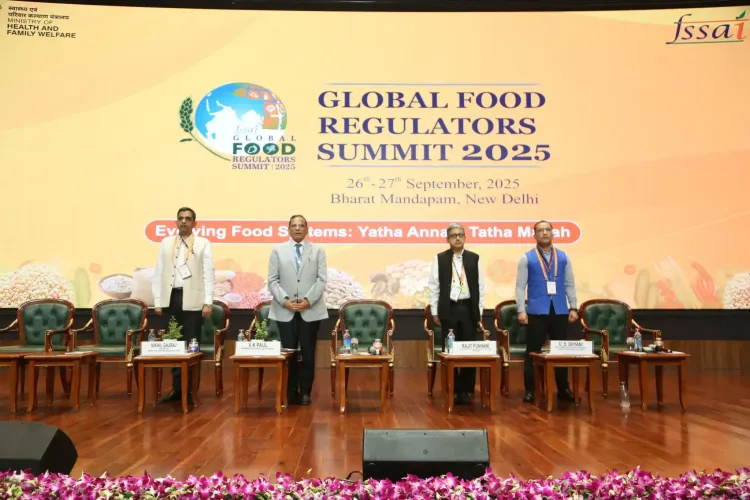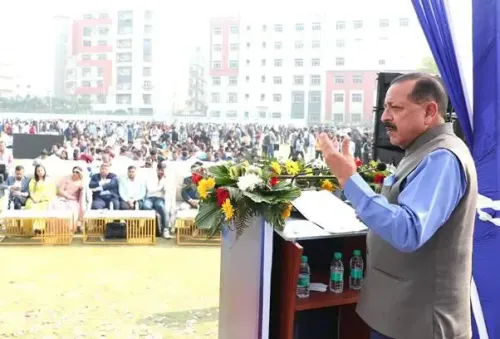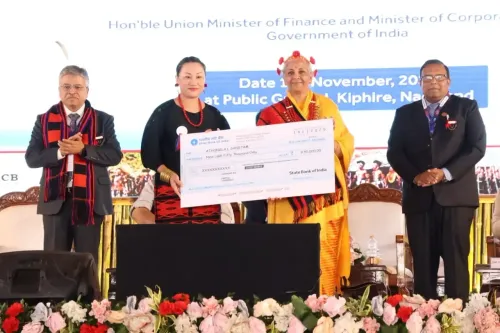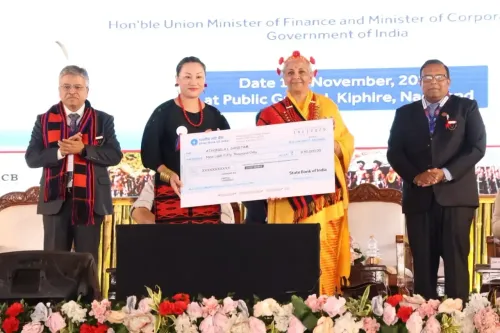How is FSSAI Transforming Street Food Safety?

Synopsis
Key Takeaways
- FSSAI has trained over three lakh street food vendors.
- The 'Eat Right India' initiative promotes food safety.
- The Global Food Regulators Summit fostered international dialogue.
- India aims to align its food safety standards globally.
- Traditional food practices are being validated and promoted.
New Delhi, Sep 27 (NationPress) The Union Minister of State for Health and Family Welfare, Prataprao Ganpatrao Jadhav, praised the Food Safety and Standards Authority of India (FSSAI) for its significant contributions to enhancing India’s food safety landscape, especially through extensive training and grassroots initiatives.
He pointed out that FSSAI has successfully trained over three lakh street food vendors across the country and emphasized the 'Eat Right India' initiatives, particularly the 'Eat Right Street Food Hub', which exemplifies how traditional food practices can harmonize with contemporary safety standards.
His remarks were made during the Global Food Regulators Summit (GFRS) 2025, organized by FSSAI at the Bharat Mandapam.
This two-day summit acted as an interactive platform for international cooperation, policy discussions, and sharing knowledge on vital food safety and regulatory matters, uniting national and global regulators, policymakers, industry leaders, and experts.
Jadhav remarked that "food is not just fuel for our bodies, but the cornerstone of a healthy mind and mindful living."
He further underlined the pivotal role of scientific research and innovation in enhancing global food safety and public health, reiterating India’s dedication to aligning food safety standards with international norms and calling on global food regulatory agencies to collaboratively tackle emerging challenges.
Jadhav also recognized the involvement of dignitaries from over 70 countries and international organizations, signifying a united effort to protect consumer health and foster fair trade.
Dr. VK Paul, a member of NITI Aayog, highlighted the necessity for harmonizing global regulations for bio-manufactured food, a sentiment strongly echoed at the summit.
He also insisted that traditional food, through regulatory frameworks like the “Ayurveda Aahara Regulations,” must be validated and promoted.
This approach enables the safe incorporation of our traditional and nutritious foods into the global framework, he added.
Rajit Punhani, CEO of FSSAI, stressed that together, “we can establish resilient, transparent, and future-ready food systems that protect public health and build trust across borders.”









